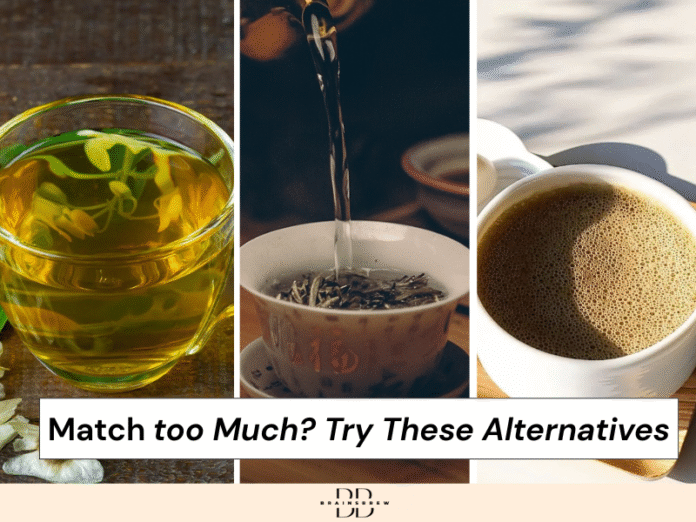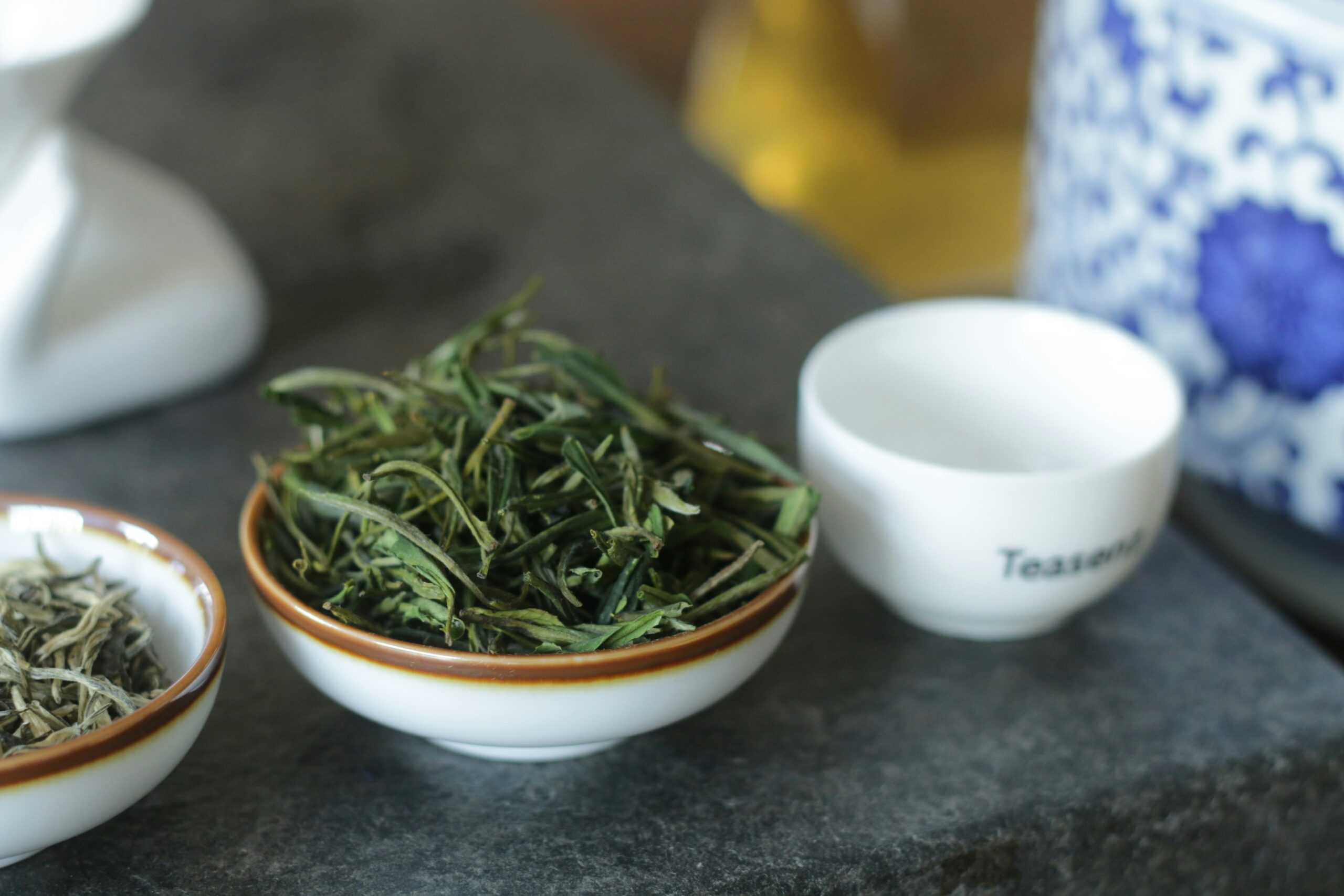Matcha came into the spotlight thanks to Instagram and TikTok videos back in the period of COVID. But, still after 5 years, instead of being a trend that fades, it keeps getting introduced in new and different ways all over the world.
This fascination with matcha has been used by food chain restaurants such as Tom Hortons, McDonald’s, and Burger King, to name a few. Not only as a drink, but it’s become a popular ingredient to be whipped into pastries, baked goods, and more.
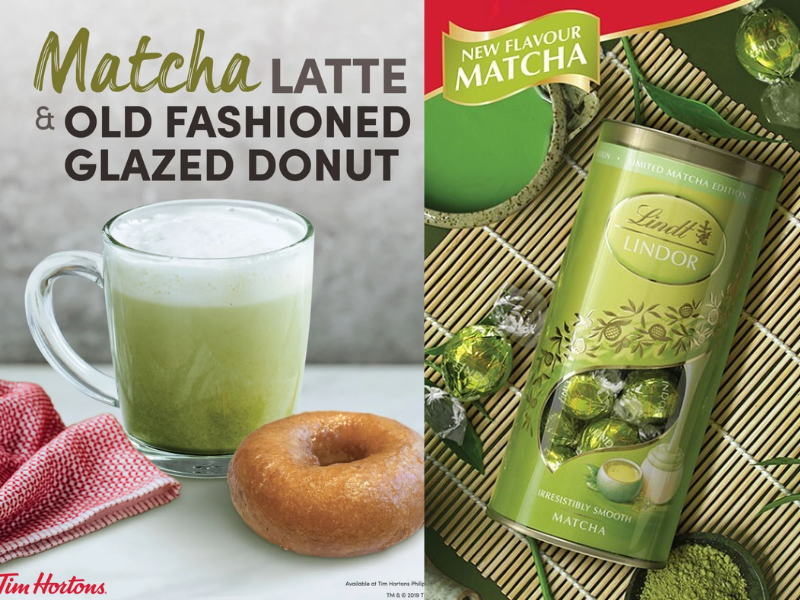
And while most seem to like caffeine-free, vibrant green drinks, I’ve seen a stellar number of people who don’t like their taste as well. That’s when I thought to make a curated list of Matcha alternatives filled with drinks, both Japanese and non-Japanese, that work like the aforementioned drink but are also not heavily caffeinated and filled with detoxifying properties:
9 Best Matcha Alternatives for Every Taste and Mood
1. Hojicha
The most popular best matcha alternative has to be Hojicha, which is another Japanese classic. It is less intense than the former, even though it’s made from the same tea plant as matcha, but its USP lies in its roasted, nutty flavor.
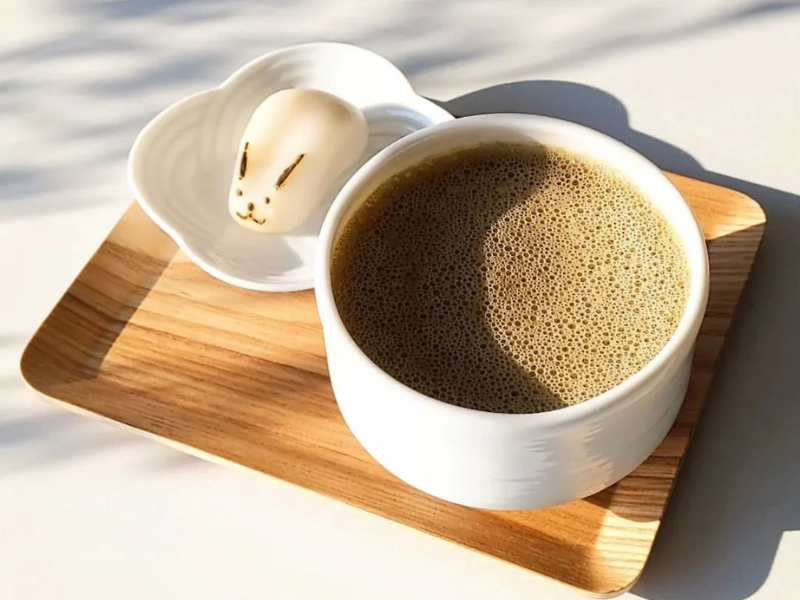
The most popular matcha latte alternative is Hojicha, which is made in the same way as Matcha, i.e., whisking the powder into water instead of brewing like most common teas.
2. Yerba Maté
This Popular matcha tea alternative from South America is slowly making its way into the hearts of energy drink enthusiasts. The matcha alternative to coffee also comes from the leaves, but not from the same green plant; it comes from another one called “Ilex paraguariensis”.
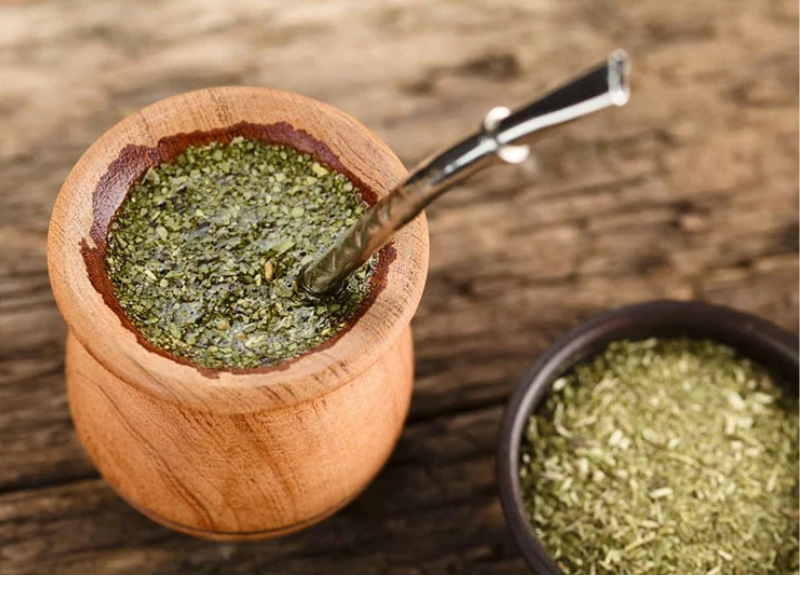
The antioxidant drink generally has more caffeine than tea but less than coffee, and becomes the perfect matcha alternative because it also has a rich, grassy taste that’s perfect in a latte or cold brew.
3. Sencha

Sencha is basically green tea. It’s from the same plant as the infamous Matcha, but instead of the vibrant green powder form, Sencha is just loose leaf tea, which is smoother and more earthy due to its steaming process of production instead of being pan-seared.
4. Gyokuro
This darker shade of matcha green tea is also known as Jade Dew. Gyokuro has a complex umami flavor and can be seen as the luxury tea when compared to Sencha, which is approximately 80% of people’s choice of drink in Japan.
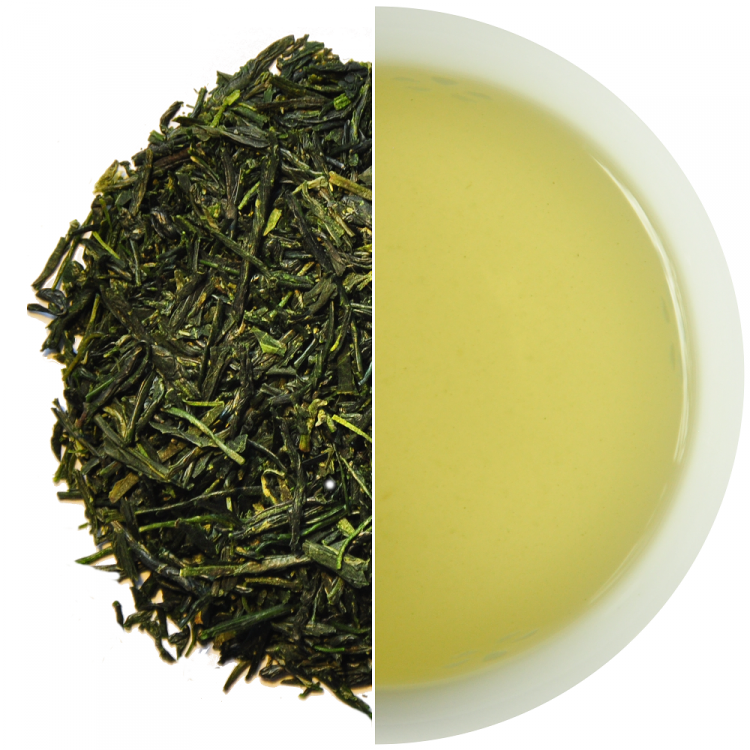
Similarities go hand in hand with Macha as well in the department of nutrients and antioxidants, such as Catechins, but Gyokuro has a higher amount of caffeine.
5. Moringa Powder
Moringa is “Horseradish,” and the powder from its tea leaves is becoming the next best Matcha substitute. In the fight between Matcha vs Moringa, Moringa powder can have the advantage of being used in more skin and beauty products.
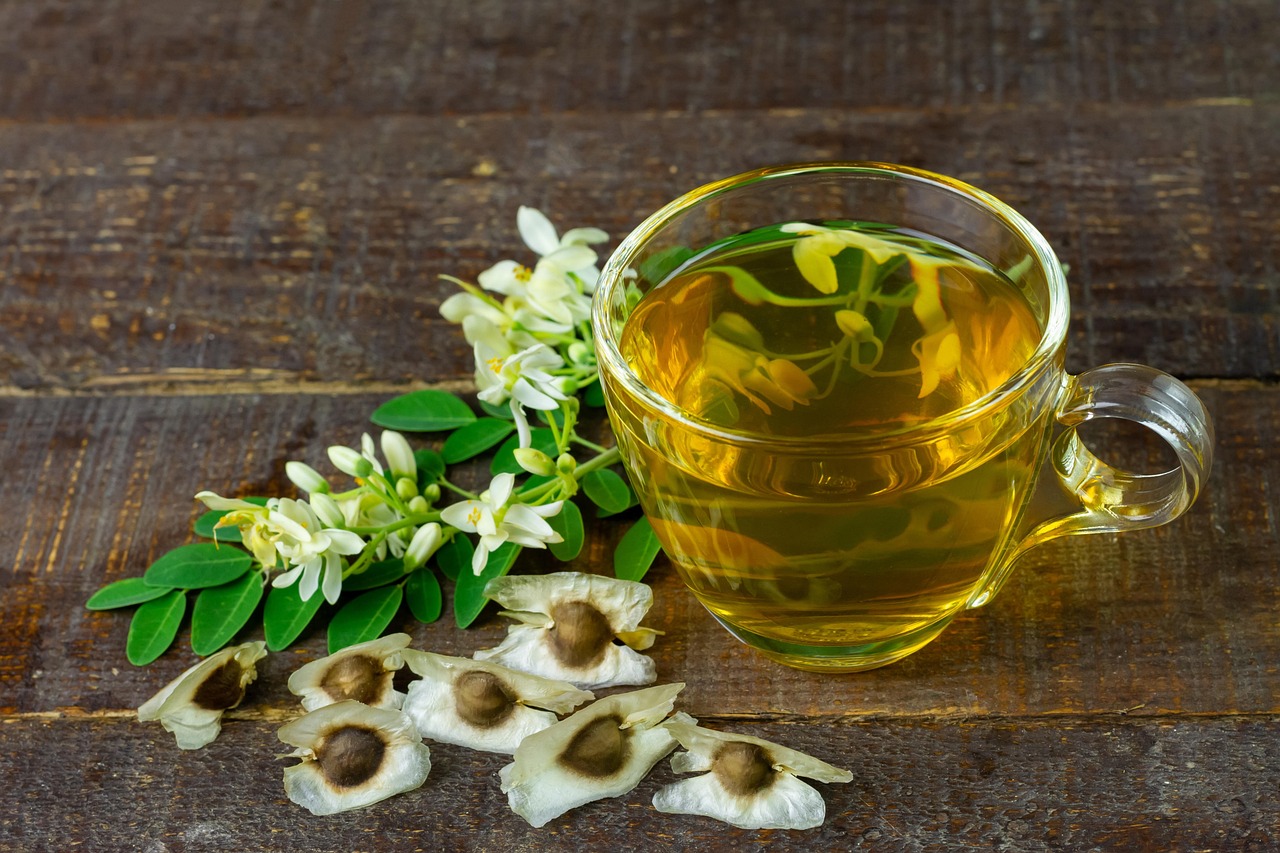
It has a similar green color, and apart from being filled with antioxidants, it has an abundance of calcium, potassium, and iron.
6. Mulberry Tea Leaf
Now this is a matcha tea alternative that is very similar to the former drink’s taste. It’s popular to be used in both hot and cold drinks, and apart from being an aid in keeping us healthy mentally and emotionally, like other teas, there have been many reports registered in helping us control our blood sugar levels as an addition.
In a study published in Pharmacognosy Journal of Pharmacognosy and Phytochemistry, the authors found the study in favor of many Mulberry Tea Leaves, concluding with:
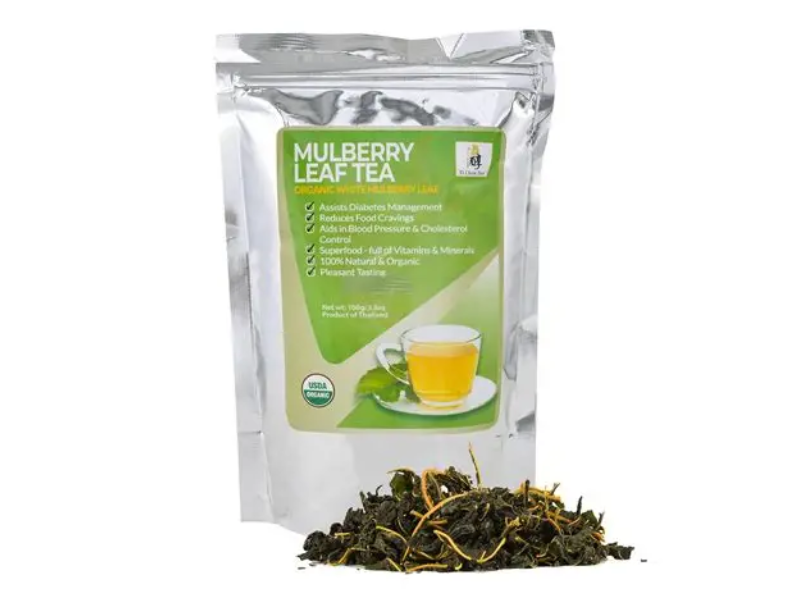
“The leaves extract may help to lower blood sugar (diabetes), inflammation levels, cholesterol, and fight against heart disease.”
7. Something Hearty: Golden Milk
Another Asian drink, which is traditional to India, not Japan, is Golden milk. If you like your matcha latte, then this creamy alternative is for you specifically. The main ingredient is turmeric, which is mixed with milk. Other ingredients such as ginger, cinnamon, and sugar can be added for more flavor.
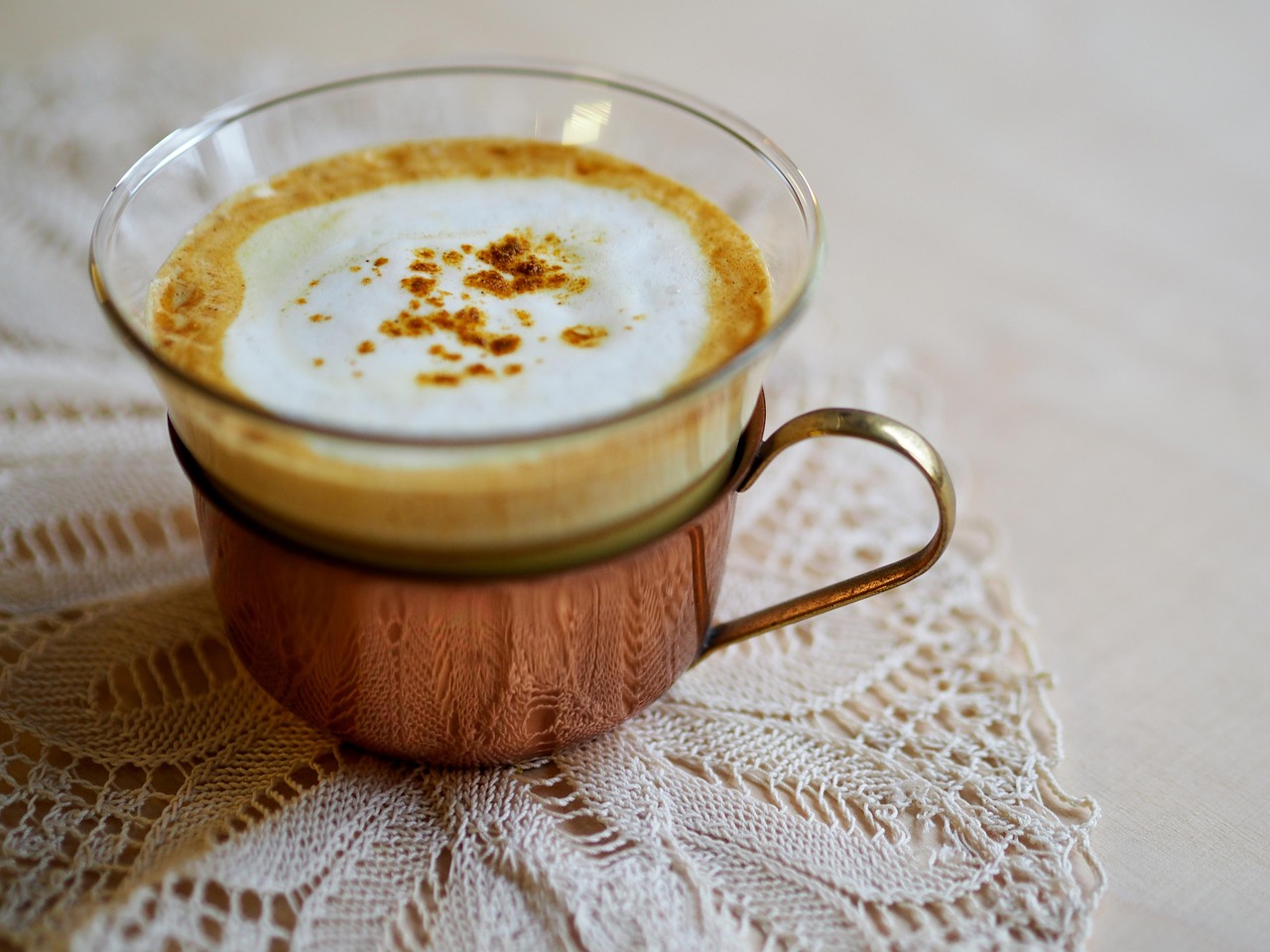
The matcha alternative to coffee may not have its grassy flavor, but it’s filled with antioxidants and anti-inflammatory properties as well, making it a go-to for people who are looking for something healthy. It can be drunk both hot and cold but is mostly used in lattes and even in desserts, pastry creams, and similar items.
8. Supplementary: Spirulina And Chlorella
Chlorella and Spirulina are both different types of algae, but the thing that makes them a popular matcha latte alternative is that they come with loads of health benefits.
The blue-green algae are particularly sought after for their blue-colored drinks that look similar to blue pea flowers. This is also rich in protein, iron, and different vitamins and minerals, and because of the similar earthy taste of Matcha, experts recommend it to be added to smoothies, baked goods, and other plant-based diet items.
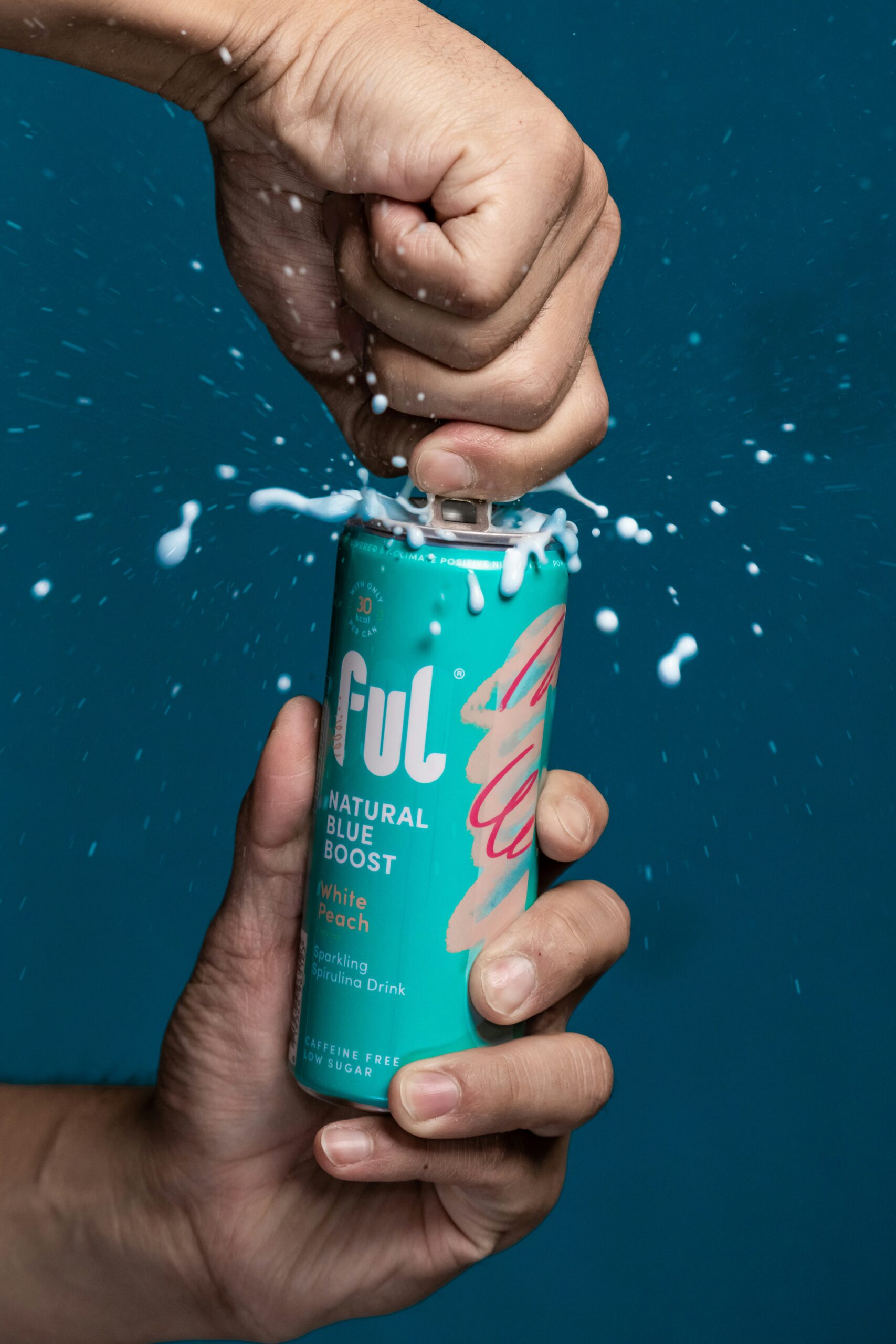
Maryann Walsh, a registered dietitian and certified diabetes educator, comments on the properties of Spirulina:
“Spirulina is typically found in the waters of warmer climates. It’s rich in flavonoids and polyphenols, such as phycocyanin, which help contribute to its high antioxidant levels.”
9. Chlorella Powder
Similar to Spirulina, Chlorella is another algae-derived powder with detox superpowers. Known for its ability to promote wellness and support detoxification, chlorella is high in chlorophyll, iron, and essential amino acids.
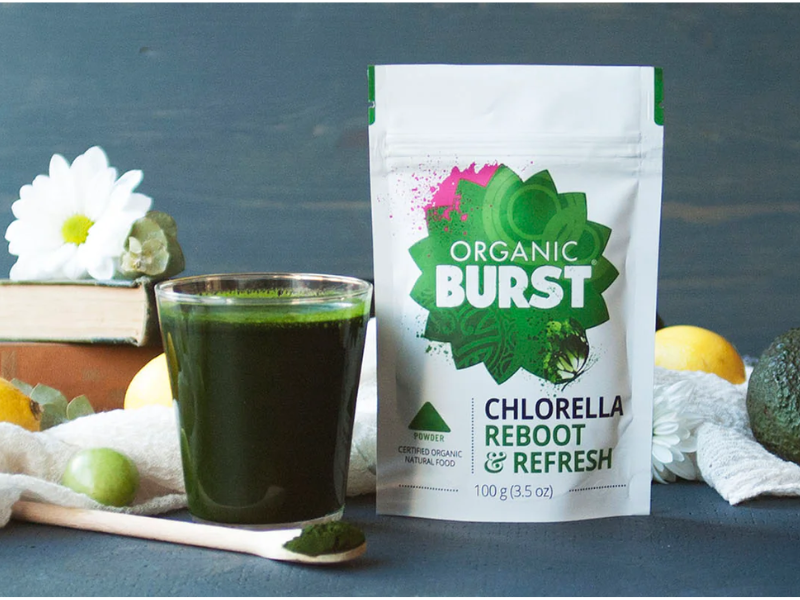
Its flavor can be more pungent, so I’ve seen people use it more in their health drinks and fruit-based smoothies. So, if you drink Matcha for the health benefits, this can be a nice caffeine-free option!
Conclusion
Matcha is a big thing in the wellness community. But for people who do not like its taste or are just bored with the grassy flavor, these listed antioxidant, healthy, similar drinks can be experimented with. You may have heard about some before and some not, but the equally powerful, colorful, and nourishing alternatives to matcha can be the next best drink to your heart’s desire!

